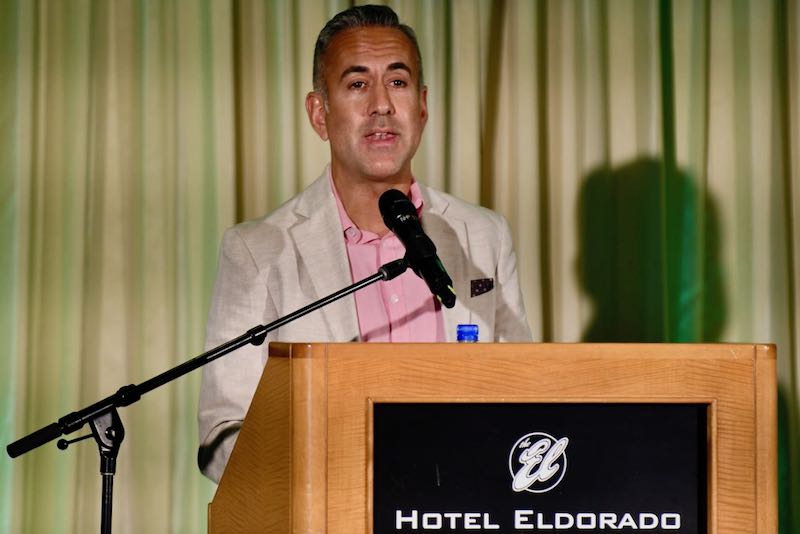News
Kelowna is ‘cannabis friendly,’ says mayor
Published on April 21, 2022 by John McDonald
 Photo: John McDonald/the oz.
Photo: John McDonald/the oz. Kelowna Mayor Colin Basran says his fast-growing city would be open to considering retail density limits for cannabis dispensaries.
The number of cannabis dispensaries in BC — over 400 private and 30 run by the provincial government — is a sore point for many participants attending the inaugural BC Cannabis Summit in Kelowna.
Limits on retail density is a key policy point of the Association of Canadian Cannabis Retailers (ACCRES), one of the organizers of the three-day event.
In a keynote address, Basran told the crowd the Interior city welcomes “entrepreneurs, innovators and progressive thinkers” and described Kelowna as “cannabis friendly.”
“We’ve seen the craft brewing and distilling market take off in the last five years as more young entrepreneurs and crafts people are drawn to our city,” said Basran.
“I know this same potential exists for the craft cannabis sector here in our city with many aspects of the business to explore and develop.”
Basran pointed to laboratory services and supply chain businesses as well as production sites and retail stores and said they all contribute to a diversified economic sector in Kelowna and across the country.
But the retailers’ association believes the current number of stores in the province and across Canada is hurting existing operations in a sector that already faces steep financial and regulatory hurdles in starting operations.
Basran confirmed Kelowna currently has no limit on the possible number of retail cannabis dispensaries with over 20 already in business.
However, the mayor also said the city is currently revisiting its cannabis sector rules and regulations and would welcome input from industry groups.
“Right now there is no cap, but that doesn’t mean there couldn’t be,” he added. “We would certainly listen to what they have to say.”
Retailer association representative Cory Waldron said the problem in BC stems from the current model where the BC Liquor Distribution Branch controls distribution to retailers, but local governments control how many stores are allowed within their borders.
The LDB also operates government-run stores in some communities and has plans to open dozens more, Waldron said, in competition with private retailers.
—
Updated April 27 with correction
Leave a comment on our Facebook page.
© Copyright 2022 Okanagan Z. | About the oz.
Report a Typo or Inaccuracy
We strive to avoid typos and inaccuracies. However, on occasion we make mistakes. We value your contributions and help in correcting them.